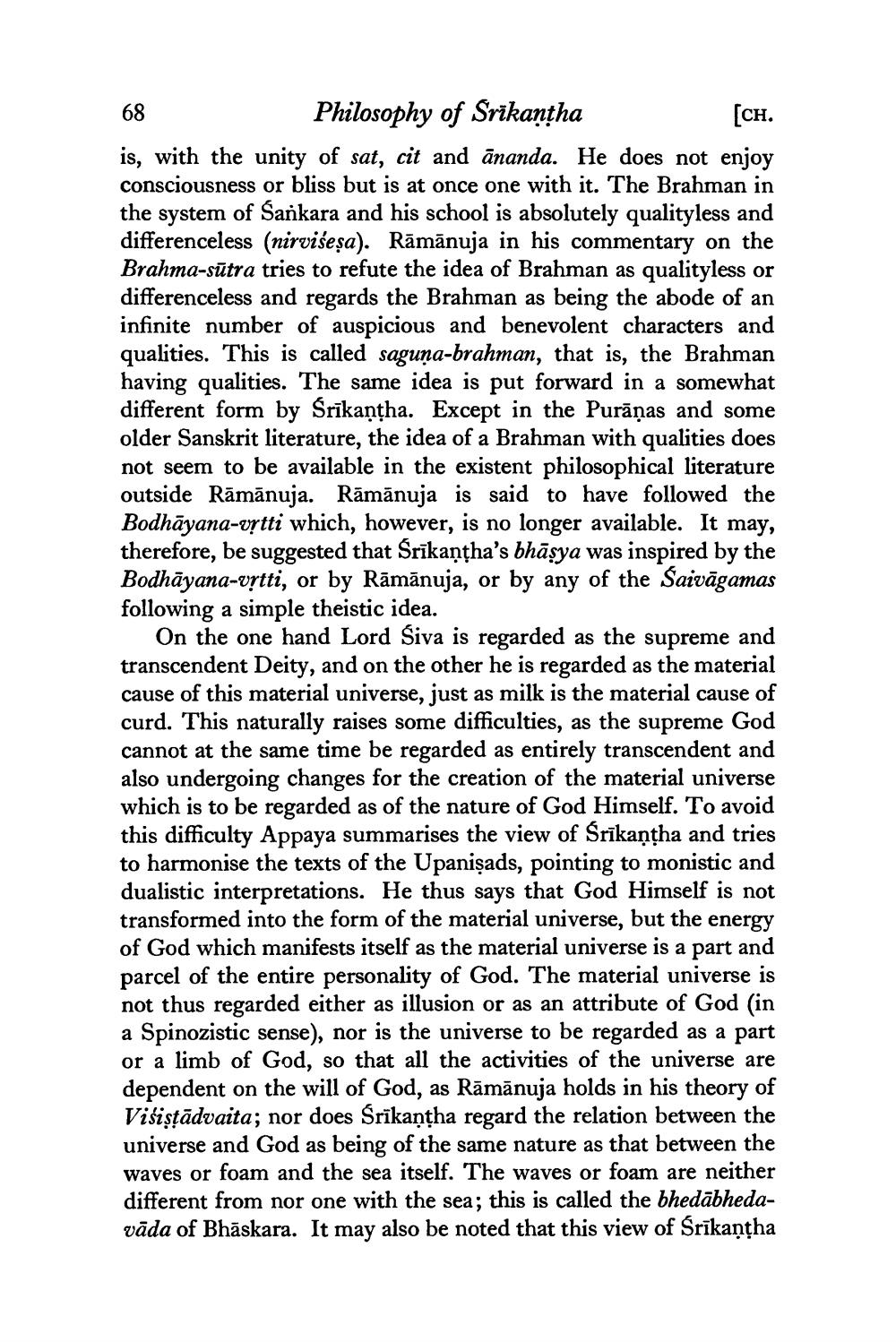________________
Philosophy of Srikantha
[CH. is, with the unity of sat, cit and ānanda. He does not enjoy consciousness or bliss but is at once one with it. The Brahman in the system of Sankara and his school is absolutely qualityless and differenceless (nirviseșa). Rāmānuja in his commentary on the Brahma-sūtra tries to refute the idea of Brahman as qualityless or differenceless and regards the Brahman as being the abode of an infinite number of auspicious and benevolent characters and qualities. This is called saguna-brahman, that is, the Brahman having qualities. The same idea is put forward in a somewhat different form by Śrīkaņķha. Except in the Purāṇas and some older Sanskrit literature, the idea of a Brahman with qualities does not seem to be available in the existent philosophical literature outside Rāmānuja. Rāmānuja is said to have followed the Bodhāyana-vrtti which, however, is no longer available. It may, therefore, be suggested that Srīkantha's bhāsya was inspired by the Bodhāyana-vrtti, or by Rāmānuja, or by any of the Saivāgamas following a simple theistic idea.
On the one hand Lord Siva is regarded as the supreme and transcendent Deity, and on the other he is regarded as the material cause of this material universe, just as milk is the material cause of curd. This naturally raises some difficulties, as the supreme God cannot at the same time be regarded as entirely transcendent and also undergoing changes for the creation of the material universe which is to be regarded as of the nature of God Himself. To avoid this difficulty Appaya summarises the view of Śrīkantha and tries to harmonise the texts of the Upanişads, pointing to monistic and dualistic interpretations. He thus says that God Himself is not transformed into the form of the material universe, but the energy of God which manifests itself as the material universe is a part and parcel of the entire personality of God. The material universe is not thus regarded either as illusion or as an attribute of God (in a Spinozistic sense), nor is the universe to be regarded as a part or a limb of God, so that all the activities of the universe are dependent on the will of God, as Rāmānuja holds in his theory of Višistādvaita; nor does Srikantha regard the relation between the universe and God as being of the same nature as that between the waves or foam and the sea itself. The waves or foam are neither different from nor one with the sea; this is called the bhedābhedavāda of Bhāskara. It may also be noted that this view of Śrīkantha




